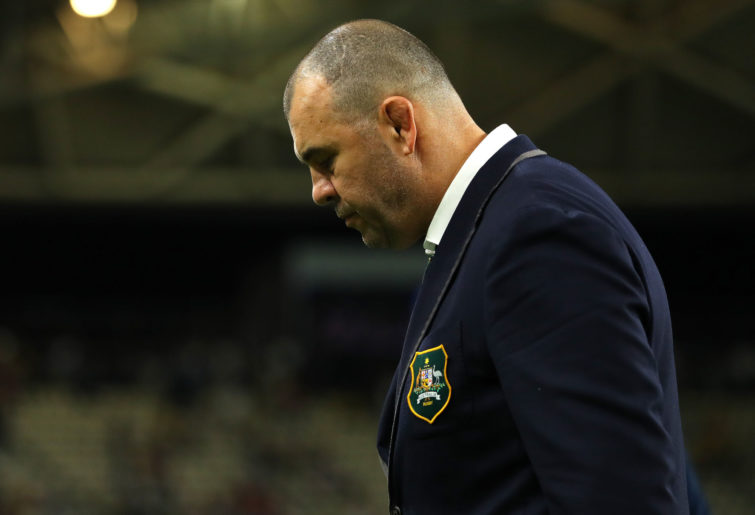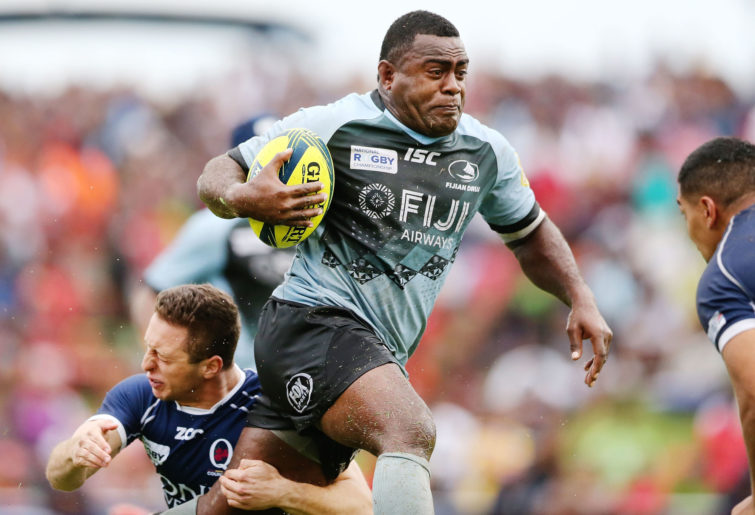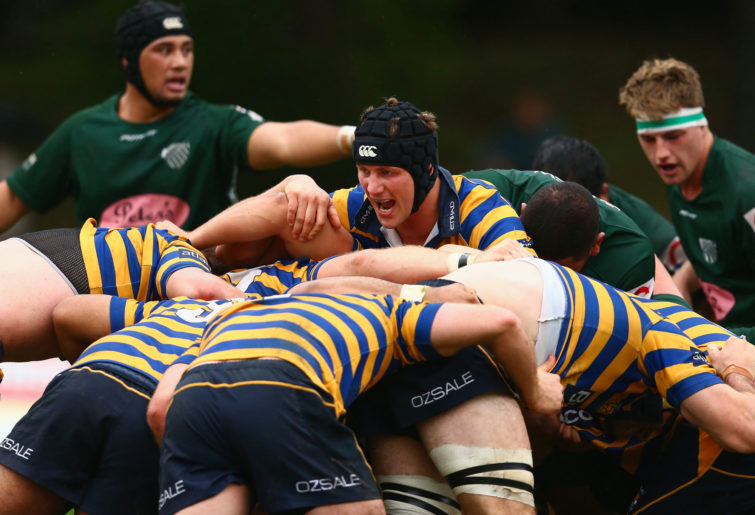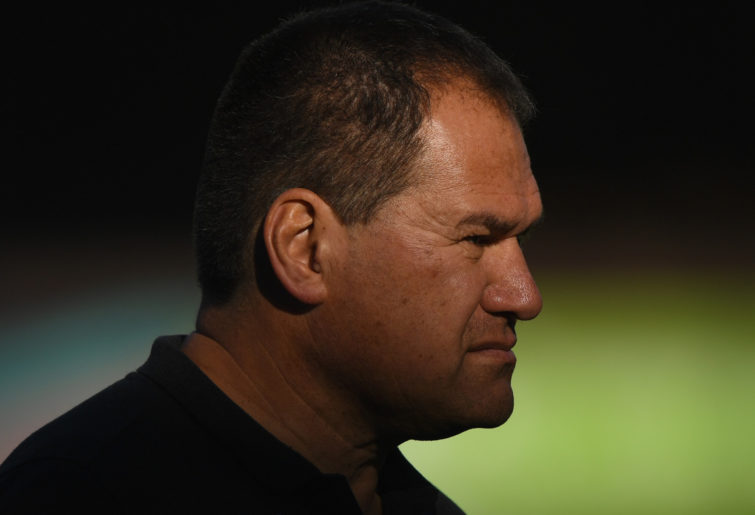Wallabies in danger of losing Hanigan to ambitious French club just as forward enters his prime
Ned Hanigan is one of the in-form forwards in Australian rugby who looks set to finally turn promise into quality on the international stage,…
Opinion
The headlines about Raelene Castle’s resignation spread as rapidly as COVID-19, gathering speed as the news crossed countries, continents and in to people’s homes.
Just days after a number of former Wallabies captains penned their controversial letter, they have got their wish and will see some change in leadership at the top of Australian rugby.
Much has been written and said about that letter, including from The Roar editor Daniel Jeffery, who correctly pointed out that although change was called for, no ideas or firm plans were presented as an alternative to the current malaise that has dogged RA over the past decade.
Yes, the Wallabies have been on a steady decline. Yes, attendances at professional games have reduced to one man who couldn’t even be bothered to subject his dog to it. Yes, the power of a few Sydney clubs has grown to an unmanageable level for those paid the big(ger) bucks.
However, this neglects to mention that overall participation in the grassroots has grown, particularly among women and girls. The powerful clubs in Sydney have grown their voices along with their money to such an extent that it is not only hurting rugby union in the city – see the demise of rugby union in western Sydney – it has also adversely impacted RA’s attempts to correctly establish a second-tier national competition in the NRC.
Rugby Australia is not solely in charge of the professional game in Australia. Some responsibility falls with SANZAAR. Rugby Australia are a fully paid-up member of this, but with no alternatives they are at the mercy of the money from South African television and the playing talent in New Zealand.
If Rugby Australia had chosen to go it alone then it risked being isolated in the southern hemisphere without regular games against two of the world’s best rugby-playing nations.
All of these problems were in place prior to Castle taking charge at RA. There have been suggestions on that ever-so-unreliable place of social commentary, Twitter, that her resignation should come as no surprise. As the most powerful person in Australian rugby she was on to a losing battle for a) being a woman, b) being a Kiwi national and c) having a rugby league background.
Unless clear evidence can be presented, this is not the case.
When Castle took over from the also much maligned Bill Pulver in January 2017, she quickly had to deal with the Israel Folau saga. She subsequently had to deal with the continued ebbing away of Wallaby gold, the removal of the Western Force from Super Rugby and the almost constant calls for head coach Michael Cheika’s head.

(Dan Mullan/Getty Images)
Some of these things could have been handled better. Rather than pandering to one of the top Wallabies performers she should have cut ties early on. The retention of the Western Force in Super Rugby should have been stronger, and Cheika was lucky to hold on to his job all the way to the World Cup in Japan. But I’m not going to go over old ground on these issues.
The real question is: what next?
Where does Rugby Australia go? How does it start to endear itself to the Australian public? How is the game going to hold off the advances of AFL and rugby league in traditional union heartlands? How is it going to stop rugby union becoming the exclusive pastime of a handful of individuals who went to private schools and expats?
I’m not in the running to become the new CEO of Rugby Australia. I not an Aussie, I didn’t go to a private school in the Eastern suburbs, I have only played a handful of games for Randwick and I’m not averse to enjoying some NRL or football.
Despite this, here is my proposal to overcome the impending doom now that Castle has gone.
1. Get with the times
Rugby Australia is in a strong position to potentially rejuvenate its media offer. An online platform should be seriously looked at to provide rugby coverage from schoolboys and grassroots clubs through to the professional game.
It should also ensure that a significant amount of higher level rugby is on free-to-air TV. This should include Wallabies games and NRC. As the old adage goes, you have to see it to be it.
Subscriptions to all encompassing providers is on the decline. People now want a more tailored offer. Linking up with a company like DAZN could help rugby union reach a younger market, which could then have longer term benefits. Alongside this, a system similar to the NBA League Pass model should be created internally for a future launch, allowing RA to take in all the earnings from coverage and being able to offer exclusive insights to fans.
2. Look at the EPL
The Premier League is worth a fortune. Clubs in the top flight of English football are desperate not to void or end the season with nine rounds remaining for the simple reason that they would then have to pay back a portion of the considerable income earned from oversees TV.
Rugby Australia may need to look at flogging its TV footage outside of the country. Tap in to the growing Asian interest and get exclusive deals for Wallabies games to be broadcast in Japan, China, Singapore and the Middle East. Rather than selling to one rights holder who then does the hard yards of finding channels to put it on, RA needs to put in some graft and do it itself.
3. Embrace the Pacific
Look at Drua away games in the NRC. When they visited Queensland Country or Sydney, the crowds grew significantly. The Polynesian population in Australia continues to grow, as it does at the elite end of the game. Embrace this.

(Photo by Anthony Au-Yeung/Getty Images)
Australian rugby needs to seriously consider how it can look after Tongan, Samoan and Fijian fans and players and bring them inside.
Don’t you think RA is in enough trouble now? Why add extra responsibility? It’s for a longer term gain. Depending on the outcome of the forthcoming World Rugby election, Rugby Australia could potentially tap them up for additional funding to allow Samoa and Tongan teams to also join the NRC. This could then formulate itself in to Pacific Select team that competes in a higher level competition against NSW, Queensland, ACT, Western Australia and Victoria plus South Australia.
RA could also work alongside the NZRU to establish a new Pacific competition and potentially include Japanese teams depending on the JRFU’s inclination. Don’t create new franchises that the public can’t relate to. It takes a generation before those teams mean something so sticking with the normal state teams, sub-state teams (NSW Country, Sydney, Queensland County and Brisbane), and clubs allows loyalty and passion to grow.
4. Pick up more Twiggies
The game in Australia needs cash and it needs it sooner rather than later. Third-party investment should be seriously considered. Individuals or companies that are happy to invest the wealth that they have accrued in different areas in to the game should be encouraged.
However, to stop it getting away from RA, guidelines should be laid down and policed. Australians need to make up the majority of Super Rugby teams. For this purpose, this means the NSW Waratahs, Queensland Reds, Brumbies, Rebels and Western Force. Stop importing mid-level players for cheap and provide bonuses for teams bringing players through their academies.
5. Get down to the grassroots
Clubs are the heart of rugby union. RA needs to work closer with all clubs to grow participation outside of traditional areas. Work with schools where there aren’t enough players to create a team to establish strong links with local clubs that can provide young players the opportunities to play.
It should also be in the remit of board members to visit local clubs on a consistent basis, away from the traditional powerhouse clubs. They need to ask questions and understand the issues that clubs are facing, from finding a pitch to play on to having to scrabble around on a match day to find enough shirts or boots for players. Community coaches should be placed in non-rugby heartlands to grow the game. Innovative ideas may be needed in some areas. There is no one size fits all.

(Photo by Mark Kolbe/Getty Images)
6. Rethink grade footy
Why is it that a club that only has one senior men’s team has to play up against another club’s first XV even though the former is actually the level of the latter’s third XV? The Shute Shield and Queensland Premier, to name two, are good competitions, but they don’t grow the game.
Allowing teams to play appropriate level competitors is better for all, and travel should be kept to a minimum where possible. If I’m playing in Toowoomba, I don’t want to have to travel for an hour and half to Sunnybank to play against another club’s first XV, which I am well aware will beat us in the first five minutes. RA needs to force its state unions to manage the game properly. They need to take some responsibility.
7. Negativity breeds contempt
Stop with the negative story lines. There are a lot of great people in rugby doing great things. Promote these more. Yes, a proportion of negativity comes from the press but they need to be able to pose questions otherwise blind ignorance will lead to trouble.
I don’t care whether individuals need to be planted in media companies (getting a bit KGB!) but the stories relating to rugby union need to start including positive messages like how the game is combating head injuries, how it’s a game for all shapes and sizes, how the values from rugby blah, blah, blah.
8. Keep Rennie
Dave Rennie is a real coup for Rugby Australia. There is now a risk that he will sack off the Wallabies job now that Castle has gone. Keep him onside. He could help redeem the gold jersey from the mire that it finds itself in. Encourage him to help foster young Australian coaches. Get him to work throughout the system so that prospects aren’t lost to game so easily.

(Photo by Stu Forster/Getty Images)
It may also be useful to allow him to pick those playing oversees. This would allow the Wallabies to tap into a larger talent pool without the same level of cost. To counter a sudden player drain, emphasis should be placed on those playing in Australia with regularly training camps and meetings. South Africa managed fine with a similar policy and it is gradually seeing a return of star players to their shores.
9. Keep fighting on
The fighting fund that was established in 2018 under Castle to help retain and entice young talent to the code is beginning to bear fruit, just look at the Brumbies and Queensland squads. Keep this fund going and look at growing it if necessary.
Imports from rugby league can still be looked at but why go after those that are at the upper echelons of that code, offering them above market value for an unknown return? Look in to those younger fellas that have some union background. They are the ones who are lower risk with a potentially greater reward.
10. Rugby World Cup
It is good news that Argentina withdrew from hosting the World Cup in 2027. This puts Australia in the position of favourites. Don’t blow that position. Instead, use this prospect as a goal to which objectives can be set, and if the country wins the right to host, kick start the campaign.
Ensure there is a national impact. All states and territories. All ages. All demographics. All ethnicities. Everyone should look forward to hosting a competition that would bring cash, coverage and crowds to the nation. Rugby Australia should be prepared that from the moment an award is made, all systems go in to overdrive and standards are raised.
The picture may look bleak now, but with appropriate planning and longer term thinking, rugby in Australia could come out of this in the best position of all.
The premise is simple: work from the ground up. Whoever takes control next may not get the plaudits they deserve, but they can put in place proper structures that subsequent generations can enjoy.